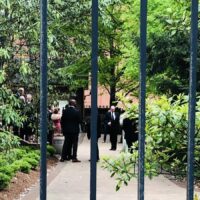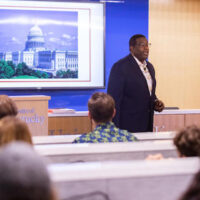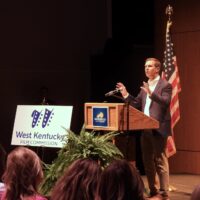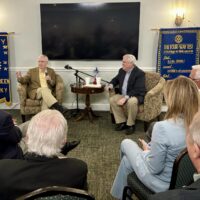When the formal tribute finally came for civil rights attorney Louis P. McHenry more than 50 years after his death, some 30 family members — his children, grandchildren, great-grandchildren and nieces — came back to revel in his Hopkinsville legacy.
They traveled from several parts of the country to celebrate the 60th anniversary of Hopkinsville’s Human Rights Commission, the organization McHenry helped to establish in the summer of 1963 — years ahead of other Southern communities where Black residents were living under Jim Crow segregation policies.
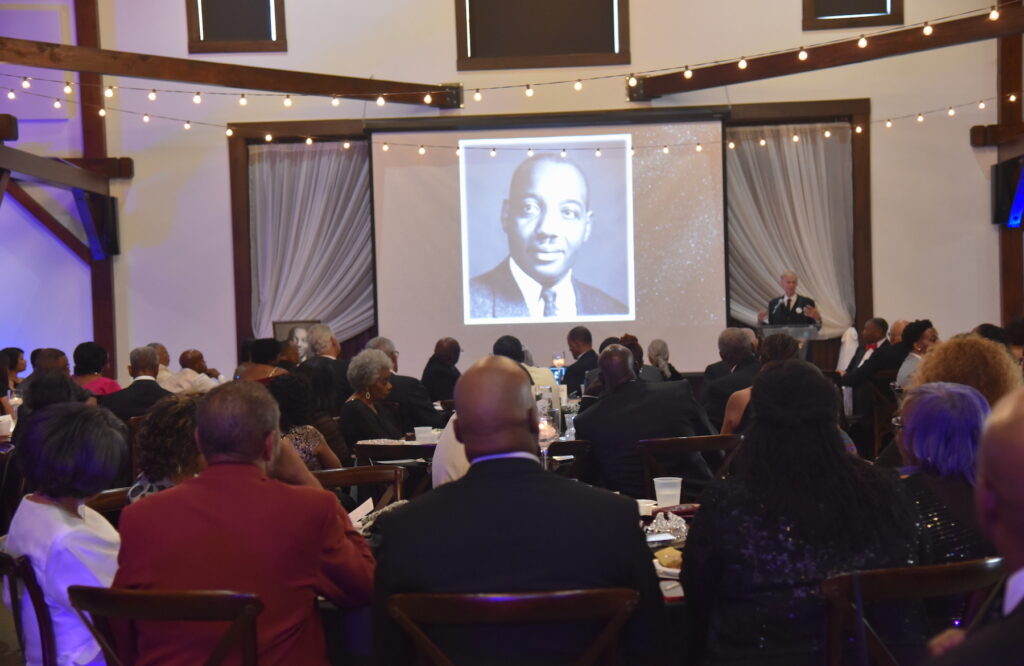
“This is an extraordinary honor for our family,” said Linda McHenry, the youngest child of the late Louis and Eleanor McHenry, and a resident of Columbus, Ohio, and Indianapolis, Indiana. “We are humbled, and we are all here.”
Speaking to an audience of roughly 200 people Saturday night at The Silo Event Center, she represented her siblings, Louis P. McHenry Jr., of Louisville, and Gail McHenry Walters, of the Fort Worth area.
At turns serious and also down to earth and humorous, Linda McHenry recalled challenges her family faced because her father was, at the time, one of Kentucky’s few Black lawyers instigating for change as counsel for the NAACP. Along with his legal work in desegregation cases, each of the McHenry children also had their roles in some push for equality.
Linda, in 1958, was the first Black child in Hopkinsville to integrate a white school when her parents sent her to first grade at Belmont Elementary School. That decision was made for her, she said, with the U.S. Supreme Court’s Brown v. Board of Education ruling when she was a toddler.
In another challenge to segregation, Louis Jr. was sent as a young teenager to try out for a Hopkinsville Babe Ruth baseball team. His father knew he would be turned away, but they had a point to make.
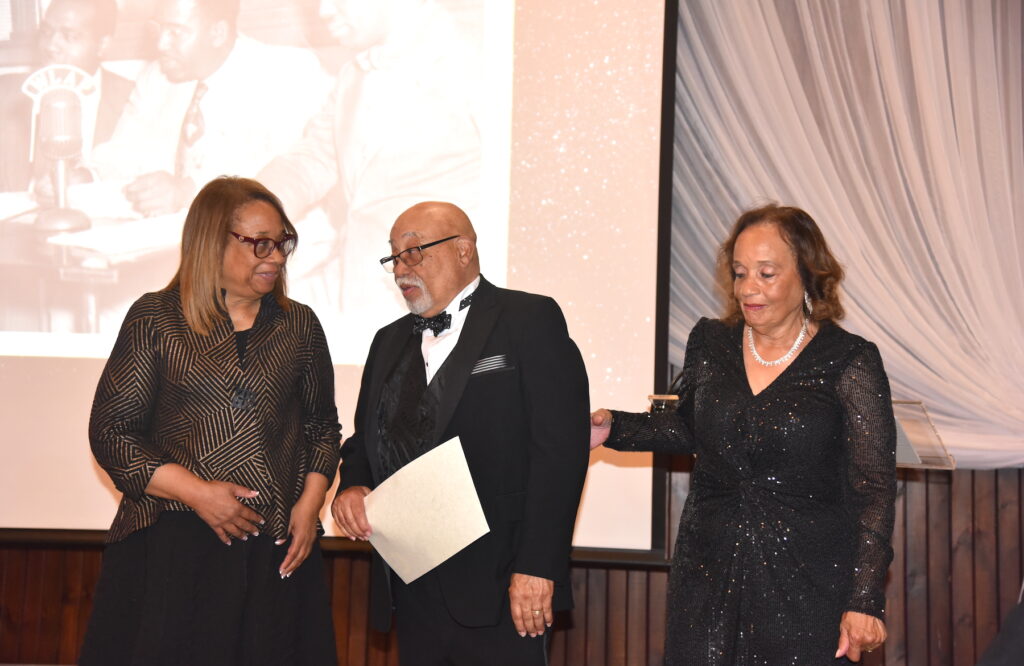
And Gail, at age 19, became a delegate to the 1968 Democratic National Convention in Chicago.
Speaking at the gala celebration, Linda McHenry expressed affection for old friends and Hoptown traditions, and she joked she might take home the pork chop bone left from Saturday’s meal prepared by Pioneers Inc., a men’s club her father had a hand in establishing.
Directing comments to Mayor James. R. Knight Jr. and the handful of other local elected officials who attended the gala, she applauded the local growth she noticed in industrial development, The Bruce convention center and the new shopping center on the Boulevard at Lovers Lane.
“I’m impressed and proud,” she said.
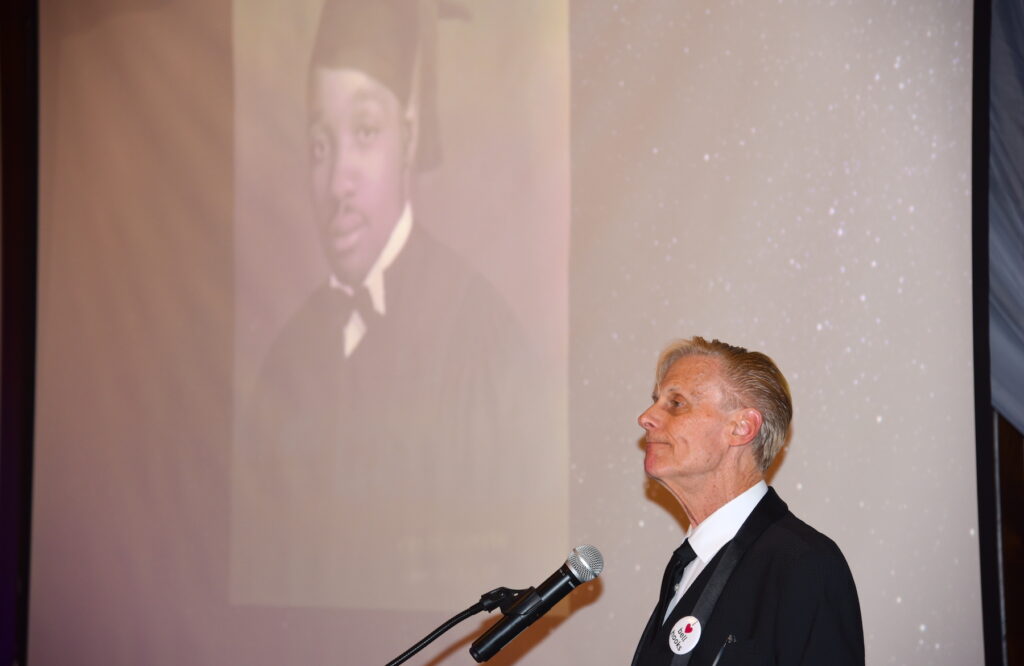
She praised Idalia Luna, the recently departed executive director of HRC who conceived the McHenry celebration. And she applauded the potential of the new director, Raychel Fort Farmer.
Knight, along with council members Matthew Handy and Natasha Francis, recognized the McHenry family during the program. Hopkinsville Police Chief Jason Newby also attended.
HRC board chair Nikki Chambers presented the inaugural Louis P. McHenry Civil Rights Award to the family. Yasamin Ausenbaugh, chair-elect of the HRC board, read an acclamation from Gov. Andy Beshear.
An attorney’s activism
A native of Owensboro and a veteran of World War II, Louis P. McHenry came to Hopkinsville in 1946 to practice law and raise a family. His legal and civic work blended in an effort to advance racial equality.
McHenry had a relatively brief amount of time to accomplish so much, his daughter observed.
In the months leading up to the creation of HRC, McHenry and others organized a meeting of Black residents at his home church, Freeman Chapel CME on South Virginia Street, to build support for a commission. (The name was changed in recent years to Human Rights Commission.) Observers have said 1,000 people attended that meeting.
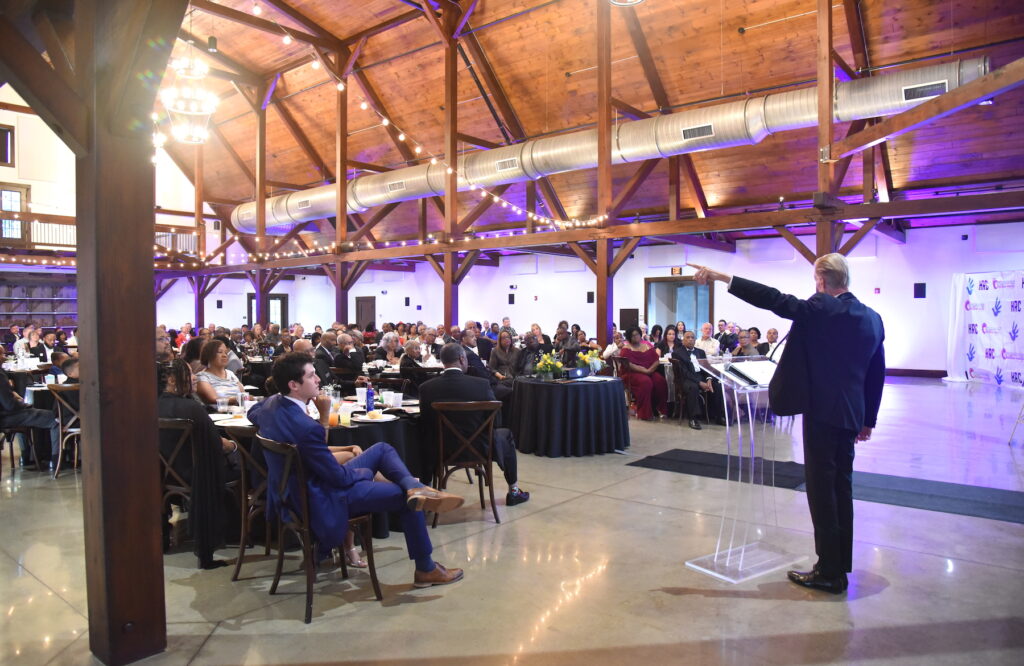
“I believe I was there when 1,000 Negro citizens assembled at Freeman …,” Linda McHenry said. She recalled a sense of urgency that invoked “hope, possibility, courage and purpose.”
Four years after Hopkinsville City Council voted to establish HRC, Louis McHenry died from cancer at a veterans hospital in Nashville. He was 52. His work in Hopkinsville had lasted just over 20 years.
Linda McHenry recalled the biblical story of Queen Esther, who was encouraged to speak the truth to her king, even at the risk of losing her life, “for such a time as this.” She asked the audience to consider how the relatively short life of service her father led offers an example today, “for such a time as this.”
Her father’s story has meaning in 2023, she said. It is a Kentucky story and an American story, she said, with examples of one man’s impact through purpose, talent, self-discipline and perseverance.
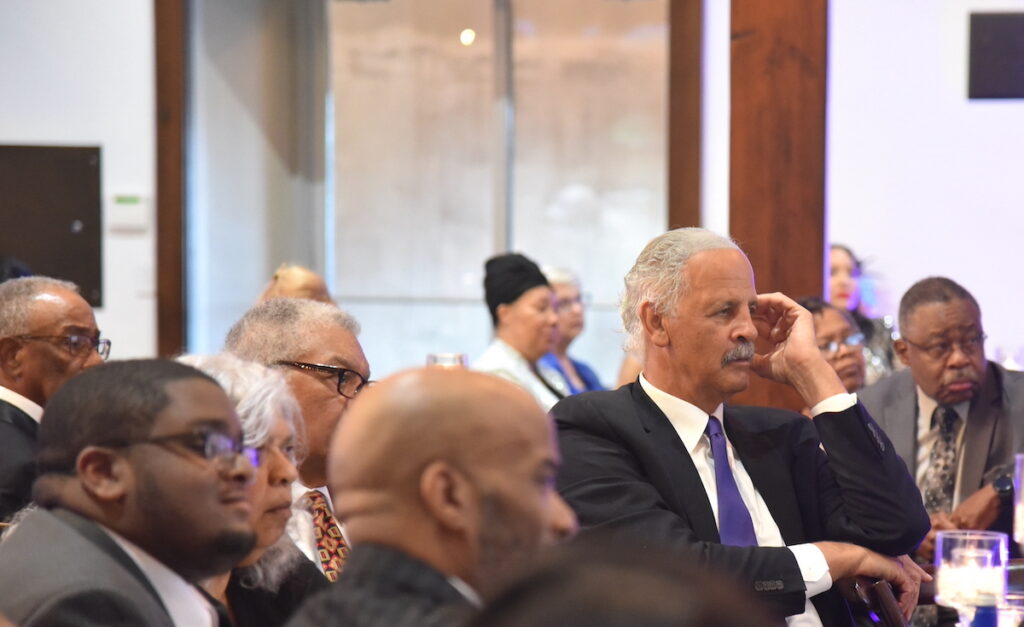
“It is up to you to continue the work that started 60 years ago,” she said told audience members, most of whom were Black and over the age of 50.
No one at the celebration spoke publicly about recent challenges for HRC, but Christian Fiscal Court voted last month to zero out its annual funding of roughly $22,000 for the agency. And the city reduced its allocation by about 5% ahead of an undisclosed conflict around the time of Luna’s departure.
In addition to Linda McHenry’s address, family friend David Thurmond spoke at Saturday’s gala.
Allies for equality
Thurmond’s parents, Hal and Bettye Thurmond, were rare in Hopkinsville’s white community as early supporters of racial equality. Hal Thurmond owned Blue Lake Block and served as board chairman for the Chamber of Commerce. Bettye Thurmond, a homemaker, would later direct the HRC.
David Thurmond recalled the day Louis Jr. attempted to try out for Babe Ruth baseball in the early 1960s. He and the younger McHenry already knew each other because they had been playing baseball and basketball around each other’s homes for several years.
That day at Babe Ruth around 40 or 50 boys were trying out, and Louis Jr. was the only Black player present. The first time he stepped up to bat, said Thurmond, one of the adults running the try-outs said, “I’m sorry, son, but we don’t let colored boys play in Babe Ruth.”
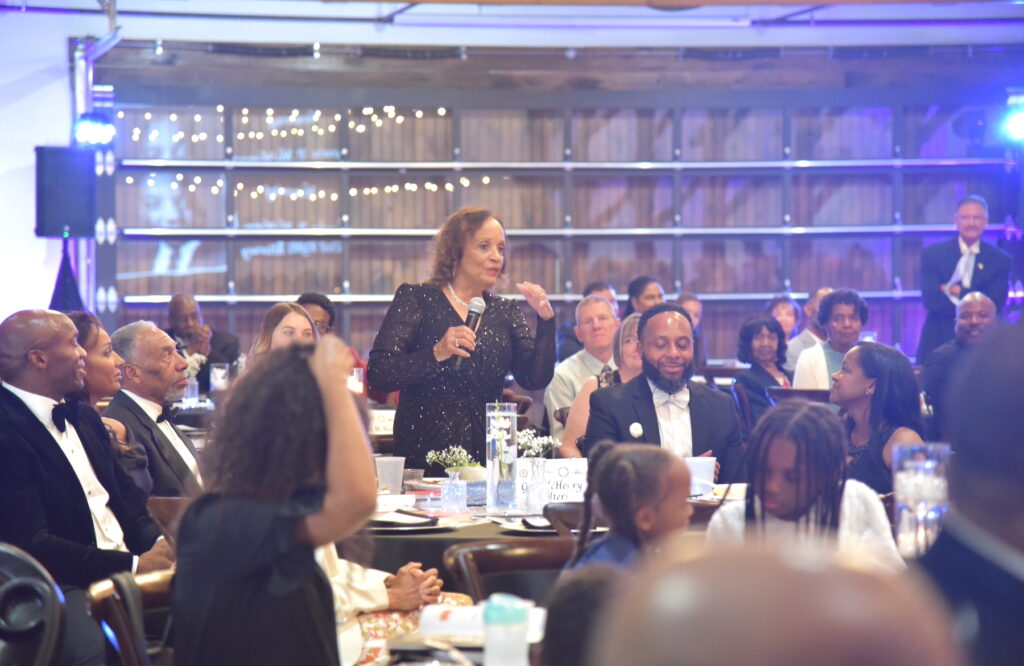
Louis Jr. went to the back of the line and waited his turn to reach the plate again. He did this a few times, and got the same rejection each time.
Years later, Thurmond, a professional dancer and arts advocate, got a call from Louis McHenry Jr., who was teaching middle school in Louisville. He asked Thurmond to come talk to his students about dance.
Thurmond described telling the students that he owed their teacher a “debt” he could never repay for the example the McHenry family set in Hopkinsville when he was growing up.
The elder McHenry’s fight for equality continued after his death. He was the first Black resident buried at Green Hill Memorial Gardens, but not without controversy. Anonymous callers harassed the family because of the burial plan. It was a traumatic time, Gail McHenry would describe years later.
Hal Thurmond, who died in 1971, and Bettye, who died in 1986, were buried near Louis McHenry. Eleanor McHenry, a retired teacher, joined them after her death in 2012 at age 96.
Families attend several gatherings
Saturday’s gala at The Silo was among several weekend events for the McHenry and Thurmond families in Hopkinsville.
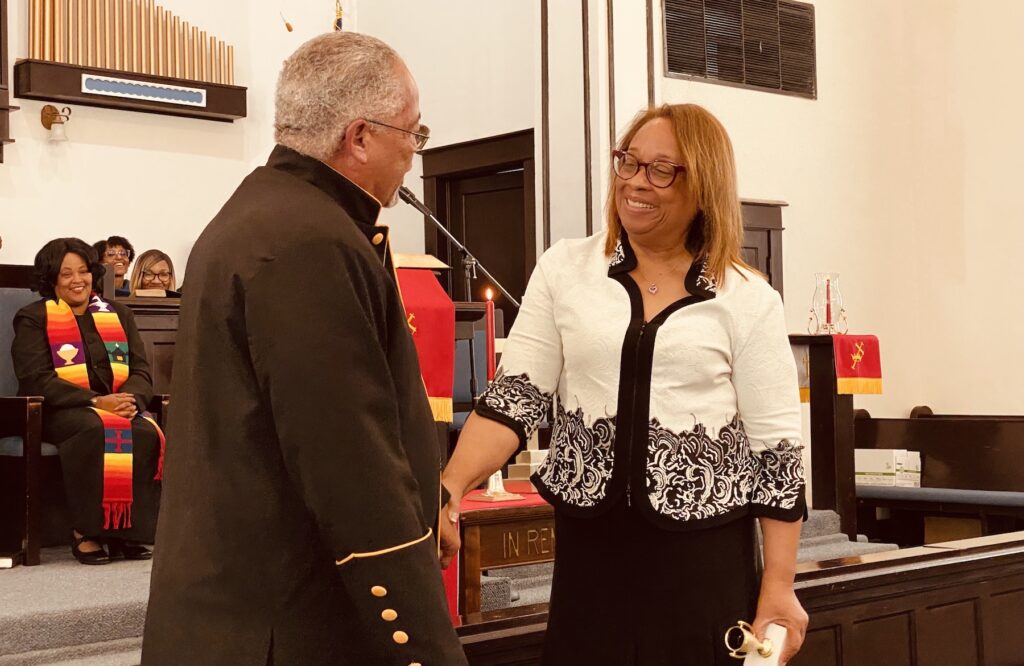
Thurmond and his wife, Diane, led a jazz dance workshop Friday for the Pennyroyal Arts Council at the Alhambra Theatre.
The families also met for a breakfast Saturday at Pioneers.
On Sunday, the McHenry family and relatives of the late Luther Stewart attended worship at Freeman Chapel. Stewart was a bishop at Freeman Chapel when Louis McHenry was organizing the progressive movement that called for creating the Human Relations Commission. Many of the meetings occurred at Freeman Chapel with Stewart’s backing, said Linda McHenry.
Jennifer P. Brown is co-founder, publisher and editor of Hoptown Chronicle. You can reach her at editor@hoptownchronicle.org. Brown was a reporter and editor at the Kentucky New Era, where she worked for 30 years. She is a co-chair of the national advisory board to the Institute for Rural Journalism and Community Issues, governing board past president for the Kentucky Historical Society, and co-founder of the Kentucky Open Government Coalition. She serves on the Hopkinsville History Foundation's board.
